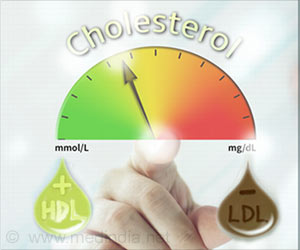Researchers from the decades long Framingham Heart Study, say that if at least one of your parents died very old, there is a good chance of you having lessened the risk factors of heart disease.
Researchers from the decades long Framingham Heart Study, say that if at least one of your parents have lived till 85 years, there is a good chance of you having lessened the risk factors of heart disease. Yet, don’t lose heart, the researchers continue, if your parents died young, diet and exercise may well do the trick.
The results from the study published in the Archives of Internal Medicine, show that middle-aged children who had at least one parent who lived to age 85 were less likely to develop high blood pressure, high cholesterol and other risk factors for cardiovascular disease than people whose parents died younger.While other research has connected longevity to heredity this multigenerational study has showed that having fewer risk factors for cardiovascular disease, the leading cause of death in Americans, is an advantage that lasts.
The Framingham Heart Study has followed generations of residents since 1948 to study cardiovascular and other chronic diseases. This latest analysis included 5,124 people who were examined every 4 to 8 years from 1971 to the present.
Says co- author Dr. Daniel Levy, director of the Framingham Heart Study and a member of the National Heart, Lung and Blood Institute, "If you weren't lucky enough to choose your parents, this study shows how some of destiny is determined by risk factors we already know about and know to be modifiable.
"We know that if we eliminate high blood pressure, eliminate high cholesterol and then cigarette smoking, we would eradicate the overwhelming majority of cardiovascular disease in the Untied States”, he adds.
Another study co-author Dr. Emelia J. Benjamin, a professor of medicine at Boston University School of Medicine says that people in mid-life should not wait for signs of trouble, to take steps to lower their blood pressure and cholesterol.
Advertisement
In an editorial about the article, Dr. Clyde B. Schecter of Albert Einstein College of Medicine expresses his queries, "Heart disease accounts for a large enough proportion of all deaths that any factor that promotes exceptional longevity almost inevitably must lead to decreased risk of cardiac death."
Advertisement
A genome-wide scan of participants across the generations in the study began last autumn with genotyping that Levy expects to be completed by the end of summer.
"Longevity may be related to risk factors we don't yet know," he says.
"We intend to look at the genetic variations that may differentiate children whose parents live to an old age from children whose parents died at a young age."
Source-Medindia
ANN








